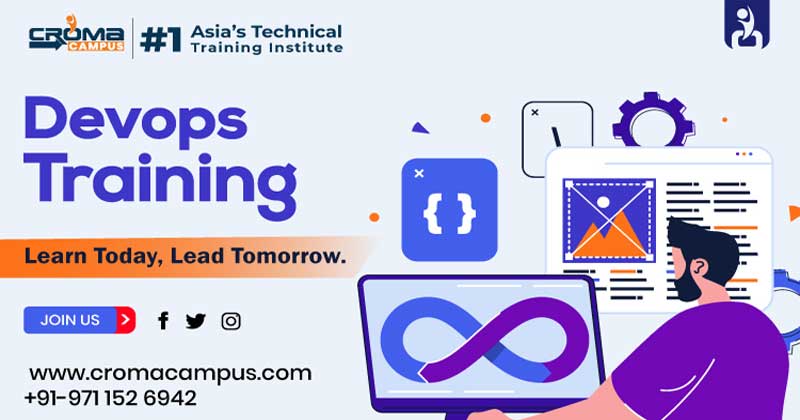Introduction
DevOps has revolutionized the way software is developed, deployed, and maintained, ushering in a new era of collaboration, automation, and efficiency. In today’s fast-paced digital landscape, organizations are increasingly adopting DevOps practices to accelerate delivery, improve quality, and enhance customer satisfaction. A DevOps course offers a comprehensive exploration of the principles, practices, and tools that underpin this transformative approach to software development. From fostering a culture of collaboration to mastering automation and leveraging cloud technologies, the DevOps Course equips professionals with the knowledge and skills needed to thrive in the dynamic world of DevOps.
Things To Learn From The DevOps Course
A DevOps course offers a comprehensive understanding of the principles, practices, and tools involved in DevOps, which is a collaborative approach to software development that integrates development (Dev) and operations (Ops) teams.
Here’s what you can expect to learn from such a course:
1. Understanding DevOps Culture and Principles
A DevOps course typically begins by introducing the foundational concepts and principles of DevOps. This includes understanding the cultural shift towards collaboration, communication, and shared responsibility between development and operations teams. You’ll learn about the key principles such as continuous integration, continuous delivery, automation, and infrastructure as code.
2. Tools and Technologies
DevOps relies heavily on a wide array of tools and technologies to automate the software development lifecycle. In a DevOps course, you’ll learn about popular tools like Jenkins, Git, Docker, Kubernetes, Ansible, Chef, Puppet, and many others. Understanding how these tools work and how to integrate them into your development and operations processes is crucial for implementing DevOps practices effectively.
3. Continuous Integration and Continuous Deployment (CI/CD)
One of the core practices of DevOps is continuous integration and continuous deployment (CI/CD). Training from the DevOps Course in Noida offers a plethora of benefits including excellent placement opportunities. You’ll learn how to set up CI/CD pipelines to automate the building, testing, and deployment of software applications. This involves configuring tools like Jenkins or GitLab CI, writing automated tests, and defining deployment workflows to ensure rapid and reliable delivery of code changes.
4. Infrastructure as Code (IaC)
Infrastructure as Code (IaC) is another key concept in DevOps, where infrastructure is managed through code and version-controlled alongside application code. In a DevOps course, you’ll learn how to use tools like Terraform or CloudFormation to provision and manage infrastructure resources such as servers, networks, and databases programmatically. This enables consistent, repeatable, and scalable infrastructure deployment.
5. Monitoring and Logging
Monitoring and logging are essential components of DevOps practices to ensure the health, performance, and availability of applications and infrastructure. While training from the DevOps Course, you’ll learn about monitoring tools like Prometheus, Grafana, and ELK stack (Elasticsearch, Logstash, and Kibana) for collecting and visualizing metrics, as well as logging tools like Fluentd and Splunk for aggregating and analysing log data.
6. Collaboration and Communication
DevOps emphasizes collaboration and communication across teams to foster a culture of shared ownership and accountability. In a DevOps course, you’ll learn about effective communication practices, agile methodologies, and collaboration tools like Slack, Microsoft Teams, or Atlassian Jira for managing tasks, issues, and project workflows.
7. Security and Compliance
Security is a critical aspect of DevOps, and you’ll learn about best practices for integrating security into the software development lifecycle. This includes techniques such as code analysis, vulnerability scanning, identity and access management (IAM), and compliance automation to ensure that applications and infrastructure meet regulatory requirements and security standards.
8. DevOps in the Cloud
Cloud computing plays a significant role in modern DevOps practices, enabling agility, scalability, and flexibility in deploying and managing applications. In a DevOps course, you’ll learn about cloud platforms like AWS, Azure, and Google Cloud, and how to leverage cloud services such as containers, serverless computing, and managed databases to build and deploy resilient and scalable applications.
Conclusion
A DevOps course provides a comprehensive foundation in the principles, practices, and tools of DevOps, equipping you with the knowledge and skills needed to implement DevOps practices effectively in your organization. The DevOps Course in Noida has been designed to provide the best learning opportunities for aspiring professionals. By understanding the cultural, technical, and organizational aspects of DevOps, you’ll be able to streamline software development processes, accelerate time to market, and deliver higher-quality software with greater efficiency and reliability.

